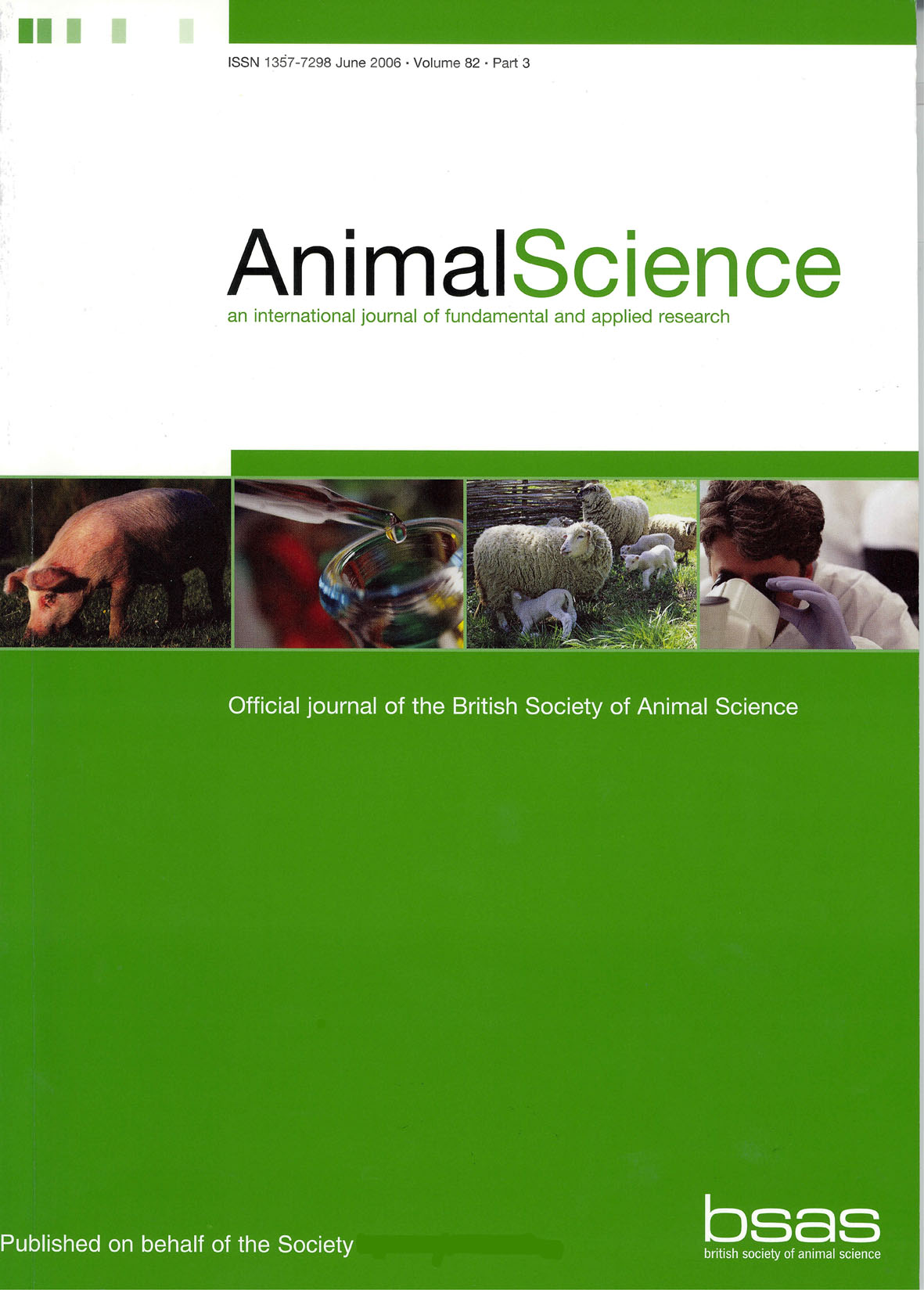Article contents
Effect of whole cottonseed on energy partitioning and nitrogen balance in sheep
Published online by Cambridge University Press: 02 September 2010
Abstract
Energy and nitrogen balance partitioning was studied in sheep given whole cottonseed (WCS), vetch hay and commercial concentrates. Sheep were offered diets containing 0 (CON) and 250 g/kg WCS at maintenance (LF) and twice maintenance (HF) levels. Digested energy, metabolizable energy (ME) and heat production (HP) were measured in a balance trial combined with indirect calorimetry. Dietary ingredients were also incubated in sacco in sheep rumens. Feeding WCS resulted in decreased energy digestibility at HF (0·718 v. 0·751) but not at LF. Loss of energy as methane expressed as a proportion of gross energy intake for CON and WCS respectively was 0·078 and 0·057 at LF and 0·061 and 0·051 at HF. In both diets, HP was similar at LF. In contrast HP amounted to 0·657 of the ME for CON and only 0·61 for WCS at HF.
Apparent nitrogen digestibility was not affected by WCS consumption. Urinary nitrogen was similar for both diets at LF, but at HF it was higher in the WCS diet. Thus at HF, retained nitrogen was 045 and 0·12 of apparently digested nitrogen for CON and WCS respectively.
Ruminal degradation of organic matter was proportionately 0·87 and 0·77 of apparent digested organic matter in the total tract for the CON diet, at LF and HF respectively and 0·80 and 0·73 for the WCS diet, at LF and HF respectively. In the four groups ruminal nitrogen degradation was equal to apparent whole-tract nitrogen digestion. It was concluded that feeding WCS may decrease metabolic HP in ruminants. Utilization of WCS could be improved by taking measures to decrease urinary nitrogen losses.
- Type
- Research Article
- Information
- Copyright
- Copyright © British Society of Animal Science 1994
References
- 2
- Cited by


